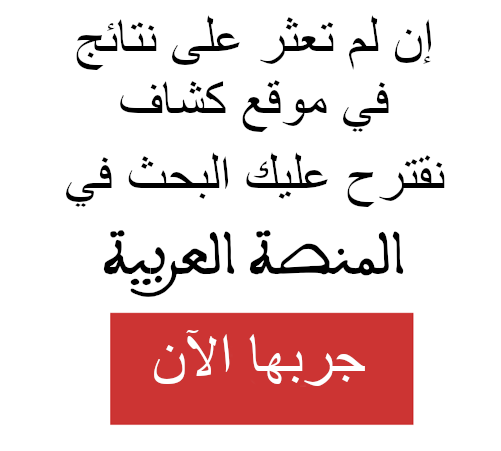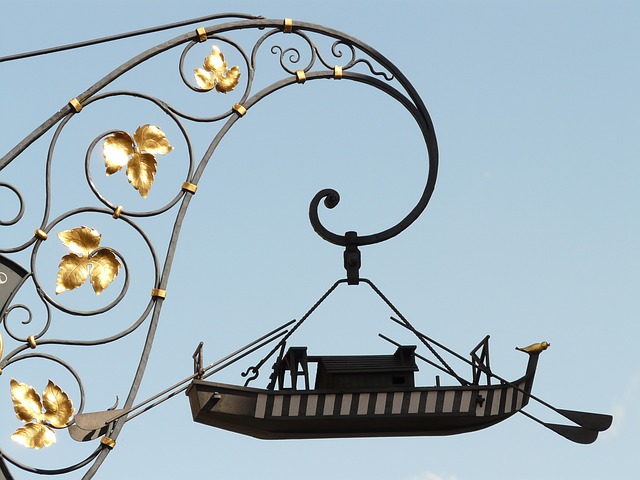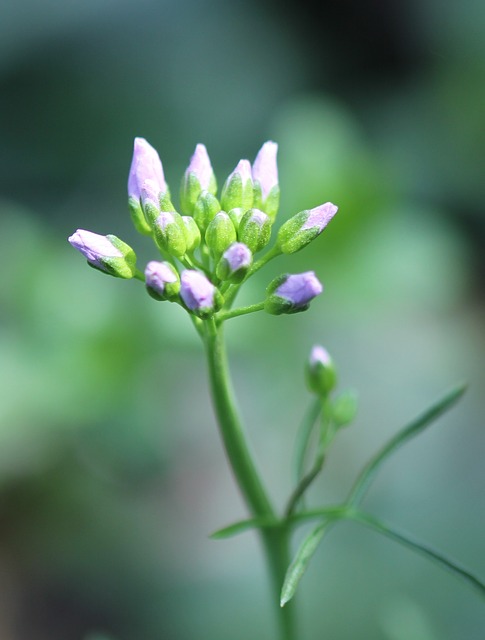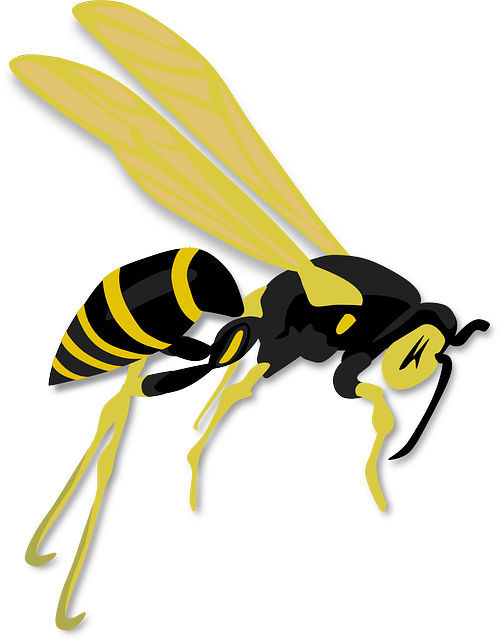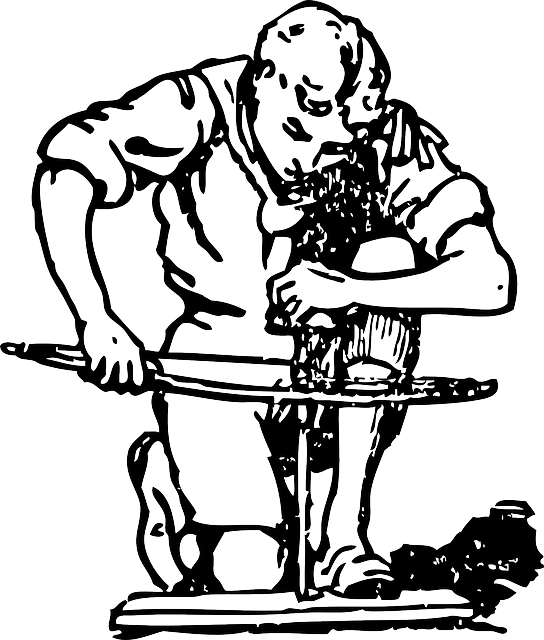قائمة الفهماء العرب القدامى
هذه قائمة بالفهماء والباحثين من العالم العربي والأندلس الذين عاشوا منذ القدم حتى مطلع العصر الحديث, ويتكونون أساساً من باحثين من العصور الوسطى. في بعض الحالات, نسبهم غير واضح. فقد يحدثوا قد هاجروا أوانتقلوا, ولذلك فقد يظهروا في "قوائم فهماء" مناطق أخرى, إلا أنهم في جميع الحالات تظل أسماؤهم وأعمالهم مرتبطة بحدثات مثل "عرب" و"عربية".
إشارة:
- Both the Arabic and Latin names are given.
-
أدوات التعريف وحروف الجر والأسماء الخمسة لا تؤخذ في الاعتبار عند الفهرسة:
- ال التعريف
- ابن, بن, بنو, أبو
- عند ادخال أسماء اضافية: لتجعل القائمة سهلة الفهرسة والتصفح الرجا اتباع التالي
Entries Format for the List of Arab scientists and scholars.
فهرست: أعلى - 0-9 | ا | ب | ت | ث | ج | ح | خ | د | ذ | ر | ز | س | ش | ص | ض | ط | ظ | ع | غ | ف | ق | ك | ل | م | ن | ه | و| ي
ا
- Abubacer
- See Ibn Tufail.
- Abulcasis
- See Al-Zahrawi.
- أحمد بن فضلان (10th century, Baghdad,Iraq)
- Writer and traveler who wrote an account of his travels as a member of an embassy of the Caliph of Baghdad to the king of the Volga Bulgars.
- أحمد بن ماجد (1432, Ras al-Khaimah, UAE - 1500,?)
- Was one of the most famous Arab navigators. He became famous in the West as the navigator who has been associated with helping Vasco da Gama find his way from Africa to India. He was the author of nearly 40 works of poetry and prose. His most important work was Kitab al-Fawa’id fi Usul ‘Ilm al-Bahr wa ’l-Qawa’id (Book of Useful Information on the Principles and Rules of Navigation), written in 1490.
- أحمد بن يوسف (835, Baghdad - 912, Egypt) - Mathematician.
- Alhazen
- See Ibn al-Haitham.
- علي بن عيسى(9th century)
- He was an Astronomer. Together with khalid Ben Abdulmelik in 827, he measured the Earth's circumference, getting a result of 40,248 km (or, according to other sources, 41,436 km).
- Armen Firman (c. 830, Córdoba, Spain - ?, Spain )
- He made one of the earliest examples of a parachute.
- الزرقلي
- See Al-Zarqali.
- الاصمعي (739, Basra, Iraq - 831, Basra, Iraq)
- Considered as the first Muslim scientist who contributed to Zoology, Botany and Animal Husbandry. His famous writings include Kitab al-Ibil, Kitab al-Khalil, Kitab al-Wuhush, Kitab al-Sha, and Kitab Khalq al-Insan. The last book on human anatomy demonstrates his considerable knowledge and expertise on the subject.
- Avempace
- See Ibn Bajjah.
- Averroes
- See Ibn Rushd.
- Avenzoar
- See Ibn Zuhr.
ب
- ابن طاهر البغدادي (980, Baghdad, Iraq - 1037, ? )
- He wrote about different systems of arithmetic in a work of great importance in the history of mathematics.
- ابن البيطار (1197, Malaga, Spain - 1248, Damascus, Syria)
- One of the greatest scientists of Muslim Spain and was the greatest botanist and pharmacist of the Middle Ages.
- ابن باجة ( ?, Saragossa, Spain - 1138, Fez, Morocco)
- He had a vast knowledge of Medicine, Mathematics and Astronomy. His main contribution to Islamic Philosophy is his idea on Soul Phenomenology, but unfortunately not completed. He was also the teacher of Ibn Rushd.
- ابن البنا (1256, Marrakesh, Morocco - 1321, Marrakesh, Morocco)
- He wrote a large number of works including an introduction to Euclid's Elements, an algebra text and various works on astronomy.
- البقلاني (?, Basra, Iraq - 1013, Basra, Iraq)
- Muslim theologian. He introduced the conceptions of atoms and vacuum into the Kalam. He extended atomism to time and motion, conceiving them as essentially discontinuous. Once when he entered the court of the Roman Emperor while he was among his Christian monks and priests, he mockingly said to one of the priests: "How are you? How are your family and children?" to illustrate a point.
- Al-Battani (850, Harran, Turkey - 929, Qasr al-Jiss, Iraq)
- His best-known achievement was the determination of the solar year as being 365 days,خمسة hours, 46 minutes and 24 seconds.
- He was able to correct some of Ptolemy's results and compiled new tables of the Sun and Moon, long accepted as authoritative, discovered the movement of the Sun's apogee, treated the division of the celestial sphere, and introduced, probably independently of the 5th century الهندn astronomer Aryabhata, the use of sines in calculation, and partially that of tangents, forming the basis of modern trigonometry. His most important work is the Kitāb al-zīğ (Arabic: كتاب الزيج "the book of tables ).
- البطروجي,Nur Ed-Din (known in the West by the Latinized name of Alpetragius);(died ca. 1204 AD) was an Arab astronomer and philosopher of the Middle Ages. Born in present-day Morocco, he settled in Seville, in Andalusia.The Alpetragius crater on the Moon is named after him.
C
د
- ابن دريد (837, Basra, Iraq - 934, Baghdad, Iraq)
- He was a geographer, genealogist, poet, and philologist. He wrote a large Arabic dictionary, "The Collection on the Language". He also wrote on the genealogy of the Arab tribes.
E
ف
- أبوالفرج الاصفهاني (897, Isfahan, Iran - 967, Baghdad, Iraq)
- Literary scholar who is famous for his Book of Songs (كتاب الأغاني), an encyclopaedic and fundamental work on Arabic songs, composers, poets, and musicians.
- محمد الفزاري
- Credited to have built the first astrolabe in the Islamic world.
- إبراهيم الفزاري
ج
- Geber
- See Jabir ibn Hayyan or Jabir ibn Aflah.
هـ
- علي بن أبي الرجال or the Arabic name Abû l-Hasan 'Alî ibn Abî l-Rijâl, was an Arab astrologer of the late 10th and early 11th century, best known for his Kitāb al-bāri' fi akhām an-nujūm.
- ابن الهيثم (965, Basra, Iraq - 1040, Cairo, Egypt)
- One of the most eminent physicists, whose contributions to optics and the scientific methods are outstanding.
- الهمداني (893, اليمن - 945, صنعاء, اليمن)
- أبومحمد الحسن بن احمد الهمداني Was a geographer, poet, grammarian, historian, and astronomer, who was one of the best representative of Islamic culture during the last effective years of the Abbasid caliphate.
- ابن حوقل (943, Baghdad,Iraq - 969,? )
- He was a writer, geographer, and chronicler. He spent the last 30 years of his life traveling to remote parts of Asia and Africa, writing about the areas and things he had seen. His famous work is Surat al-Ardh (صورة الارض; "The face of the Earth"), where he included a detailed description of Muslim-held Spain, إيطاليا, and the "Lands of the Romans," the term used by the Muslim world to describe the Byzantine Empire. In it, among other things, he gives a description of Kiev, and is said to have mentioned the route of the Volga Bulgars and the Khazars, perhaps by Sviatoslav I of Kiev.
- ابن هبل, مهذب الدين علي بن أحمد البغدادي الختالي was an Arab physician and scientist known primarily for his medical compendium titled "كتاب المختارات في الطب" It was written in 1165 in الموصل,العراق .
ا
- إبراهيم بن سنان (908, Baghdad, Iraq - 946, Baghdad, Iraq)
- The son of Sinan ibn Thabit. Was a mathematician and astronomer who studied geometry and in particular tangents to circles. He also made advances in the theory of integration.
- إخوان الصفا اخوان الصفا وخلان الوفا (The Brethren of Purity) (Basra, Iraq)
- A group of neo-Platonic Arabic philosophers during the 10th century.
- الإدريسي (1099, Ceuta, Spain - 1166 CE, Sicily)
- Considered the greatest geographer and cartographer of the middle Ages. Al-Idrisi constructed a world globe map of 400 kg pure silver and precisely recorded on it the seven continents with trade routes, lakes and rivers, major cities, and plains and mountains. His world maps were used in Europa for centuries to come. It is worth mentioning that Christopher Columbus used the world map which was originally taken from Al-Idrisi's work. He also contributed to the science of medicinal plants.
- حنين بن إسحاق (known in latin as Johannitius) (809-873 al-Hira, Baghdad)
- Translator and physician.
- ابن أبي اسحاق (died AD 735)
- An Arab grammarian and is the earliest known grammarian of the Arabic language.
ج
- جابر بن أفلح (1100, Seville, Spain - 1160, ? )
- Astronomer and mathematician whose translated works in Latin influenced later European mathematicians.
- جابر بن حيان (ca.721, Tus, Iran – ca. 815, Kufa, Iraq)
- Considered father of chemistry. He emphasized systematic experimentation, and did much to free alchemy from superstition and turn it into a science.
- الجاحظ (776, Basra, Iraq - 869, Basra, Iraq)
- He was an Arabic prose writer, historian, and author of works of adab, Mu'tazili theology, and politico-religious polemics.
- الجوهري,Abu Alabbas (ca. 800-860) was a 9th century Arab mathematician. He lived and worked in Damascus and Baghdad.He is known for writing a book, Commentary on Euclid's Elements.
- الجياني (989, Cordoba, Spain - 1079, Jaen, Spain)
- He wrote important commentaries on Euclid's Elements and he wrote the first treatise on spherical trigonometry.
- الجزري (ca. 1200, Al-Jazira, Iraq/Syria - ?,?)
- He was was one of history's greatest mechanical engineers. He authored 60 inventions in his book Al-Jami Bain Al-Ilm Wal-Amal Al-Nafi Fi Sinat'at Al-Hiyal. Among his inventions were the crankshaft, combination lock, reciprocating piston mechanism, weight-driven mechanical clock, and the first recorded design of a programmable humanoid robot.
- ابن الجزار (10th century, Qairwan, Tunis)
- 10th century influential Arab physician who became famous for his writtings on medicine. He was born in Qairwan in modern-day Tunisia.
- ابن جبير (1145,Valencia.Spain -1217,Egypt)
- Geographer, traveler, and poet. Known for his detailed travel journals.
خ
- خليل بن أحمد (c. 718–c. 791)
was writer and philologist from southern Arabia (modern day Oman) who compiled the first dictionary of the Arabic language, the Kitab al-Ayn.
- الكندي (c.801 CE, Kufa, Iraq – 873, Bahgdad, Iraq)
- A gifted mathematician, astronomer, physician and a geographer as well as a talented musician. He wrote the first treatise in cryptography.
- ابن خلدون (May 27, 1332, Tunis - March 19, 1406, Cairo, Egypt)
- One of the forerunners of modern historiography, sociology and economics. He is best known for his Muqaddimah "Prolegomena".
- الخليلي ( 1320, Damascus, Syria - 1380, Damascus, Syria)
- Was an astronomer who compiled extensive tables for astronomical use.
ل
م
- المجريطي,(d. 1008 or 1007 CE), was an Arab Muslim scholar and astronomer in Spain.
- محيي الدين المغربي (1220, Spain - 1283, Maragha, Iran)
- He was famous for his work on trigonometry.
- المعري (December 26, 973 - Mayعشرة or May 21, 1057, Ma'arra (المعرة) in Syria) was a blind Arab philosopher poet and writer.
- المسعودي ( ?, Baghdad, Iraq - 957, Cairo, Egypt)
- Was a historian, geographer and philosopher. Born in Baghdad, he traveled to Spain, روسيا, الهند, Sri Lanka and China and spent his last years in Syria and Egypt.
- الماوردي Known in Latin as Alboacen (972, Basra, Iraq - 1058, Iraq)
- He was one of the most famous thinkers in political science in the middle Ages. He was also a great sociologist, jurist, and mohaddith. He served as Chief Justice at Baghdad and as an ambassador of the Abbasid Caliph to several important and powerful Muslim states. Al-Mawardi made original contributions in political science and sociology. In these fields, he wrote three monumental works: Kitab al-Ahkam al-Sultania, Qanun al-Wazarah, and Kitab Nasihat al-Mulk. Al-Mawardi formulated the principles of political science. His books deal with duties of the Caliphs, the chief minister, the cabinet, and the responsibility of and relationship between the government and citizens. He has discussed the affairs of state in both peace and war. Kitab Aadab al-Dunya wa al-Din was his another masterpiece in Ethics. He was the author and supporter of the Doctrine of Necessity.
- Ma Yize (ca. 910, ? - 1005, China)
- An important astronomer and astrologist who worked as the chief official of the astronomical observatory of the Song dynasty.
- محمد المقدسي (946 CE, Jerusalam, Palastine - ?)
- Notable medieval Arab geographer, author of Ahsan at-Taqasim fi Ma`rifat il-Aqalim (The Best Divisions for Knowledge of the Regions)
ن
- ابن النديم
- Was a Muslim Shi'ite scholar and bibliographer who is the famous author of Kitab al-Fihrist, which is an index of all books written in Arabic by Arabs and non-Arabs.
- ابن النفيس (1213, دمشق, سوريا - 1288, القاهرة, مصر)
- Was a physician who is mostly famous for being the first to describe the pulmonary circulation of the blood.
- نشوان الحميري (?, Yemen - 1178)
- Author of Shams al-'ulum, a lexicographical encyclopedia.
ق
- Al-Qalasadi (1412, Baza, Spain - 1486, Beja, Tunisia)
- Mathematician who took the first steps toward the introduction of algebraic symbolism by using letters in place of numbers.
ر
- ابن رشد (1126, Cordoba, Spain – December 10, 1198, Marrakesh, Morocco)
- A master of philosophy and Islamic law, mathematics, and medicine. His school of philosophy is known as Averroism.
- أحمد رضا 1872, Nabatiye, Lebanon - 1953, Nabatiye, Lebanon)
- A prominent writer and linguist. Wrote "متن اللغة", first Arabic dictionary since قاموس "لسان العرب" that was assembled in the 13th Century.
- فخر الدين الرازي
- Theologian and philosopher.
س
- السموأل (1130, Baghdad, Iraq - 1180, Maragha, Iran)
- Mathematician who was able to extend the arithmetic operations to handle polynomials. He used an early form of induction.
- ابن الشاطر (1304,Damascus - 1375, Syria, Damascus)
- Was an astronomer who worked as a timekeeper in the Umayyad Mosque. His most famous work was kitab nihayat as-sul fi tashih al-usul ("A Final Inquiry Concerning the Rectification of Planetary Theory"). In treating the motion of the Moon, he eliminated the need for an equant by introducing an extra epicycle, departing from the Ptolemaic system in a way very similar to what Copernicus later also did. He also proposed a system that was only approximately geocentric, rather than exactly so, having demonstrated trigonometrically that the Earth was not the exact center of the universe. The discovery and the whole concept of planetary motion is attributed to كبلر and كوبرنيكوس while unfairly not crediting the contribution of Ibn Al-Shatir.
- سنان بن ثابت (880, Baghdad, Iraq - 880, Baghdad, Iraq)
- The son of ثابت بن قرة and father of إبراهيم بن سنان. He is more important for his contributions to medicine than to mathematics.
- ابن سهل (ca. 940 - 1000)
- Mathematician who wrote a treatise On Burning Mirrors and Lense. Rashed (1990) credited Ibn Sahl with discovering the law of refraction, usually called Snell's law.
ت
- ثابت بن قرة (836, Harran, Turkey - Baghdad, Iraq)
- Was an important Islamic mathematician who worked on number theory, astronomy and statics.
- Ibn Al-Thahabi (?, Suhar, Oman - 1033 CE, Valencia, Spain)
- Was a physician, famous for his work Kitab Al-Ma'a (The Book of Water), which is the first known alphabetical encyclopedia of medicine. In it he lists the names of diseases, its medicine and a physiological process or a treatment, and adds numerous original ideas about the function of the human organs. Indeed, he explains an original idea of how the vision takes place, similar to ابن الهيثم. It also contains a course for the treatment psychological symptoms. The main thesis of his treatment is that the cure must start from controlled food and exercise, and if the symptoms persist then use specific individual medicines.
- ابن طفيل (c.1105, Guadix, Spain – 1185, Morocco)
- He served as a secretary for the ruler of Granada, and later as vizier and physician for Abu Yaqub Yusuf, ruler of Islamic Spain (Al-Andalus) under the Almohad dynasty. He was the author of Hayy ibn Yaqdhan (Arabic: حي بن يقظان ) a philosophical romance and allegorical tale of a man who lives alone on an island and who, without contact with other human beings, discovers the truth by reasonable thinking, and then his shock upon contact with human society's dogmatism and other ills.
U
- الأموي (1400, Spain - 1489, Damascus, Syria)
- Mathematician who wrote works on mensuration and arithmetic.
- الاقليديسي (920, Damascus, Syria - 980, Damascus, Syria)
- Wrote two works on arithmetic. He may have anticipated the invention of decimals.
- أسامة بن منقذ (1095-1188,Damascus, Syria), an Arab historian, politician, and diplomat
- ابن أبي اصيبعة (1203-1270,دمشق,سوريا), an Arab physician and مؤرخ.He wrote Uyiln ul-Anba fe Tabaqat ul-Atibba or Lives of the Physicians.
و
- وضاح اليمن (Yemen,? - Syria,Damscus,709)
- He was an Arabic poet, famous for his erotic and romantic poems.
- ابن وحشية (ca.900)
- Alchemist who is claimed to have cracked the Rosetta stone, eight centuries earlier than Jean-François Champollion. The achievemnet of cracking this code is famed as a critical moment in code-breaking history.[1]
ي
- يوسف المؤتمن, رياضياتي، خط "كتاب الاستكمال" في الحساب.
ز
- الزهراوي (936, قرطبة, الأندلس - 1013, قرطبة, الأندلس)
- Was Islam's greatest medieval surgeon, whose comprehensive medical texts, combining Middle Eastern and Greco-Roman classical teachings, shaped European surgical procedures until the Renaissance. He is considered the Father Of Surgery. His greatest contribution to history is Al-Tasrif, a thirty-volume collection of medical practice.
- الزرقلي (1028,Spain - 1087,? CE)
- He was a leading mathematician and the foremost astronomer of his time. He excelled at the construction of precision instruments for astronomical use. He constructed a flat astrolabe that was 'universal,' for it could be used at any latitude, and he built a water clock capable of determining the hours of the day and night and indicating the days of the lunar months. He was the first to prove conclusively the motion of the aphelion relative to the fixed background of the stars. He measured its rate of motion as 12.04 seconds per year, which is remarkably close to the modern calculation of 11.8 seconds. He also contributed to the famous Tables of Toledo.
- ابن زهر (1091, Seville, Spain - 1161, Seville, Spain)
- Was one of the most prominent physicians, clinicians and parasitologist of the Middle Ages. He was the first to test different medicines on animals before using them with humans. Also, he was the first to describe in detail scabies, the itch mite, and is thus regarded as the first parasitologist. He was a practical man and disliked medical speculations. For that reason, he opposed the teachings of Ibn Sina.
انظر أيضاً
- List of Iranian scientists
- List of Muslim scientists

